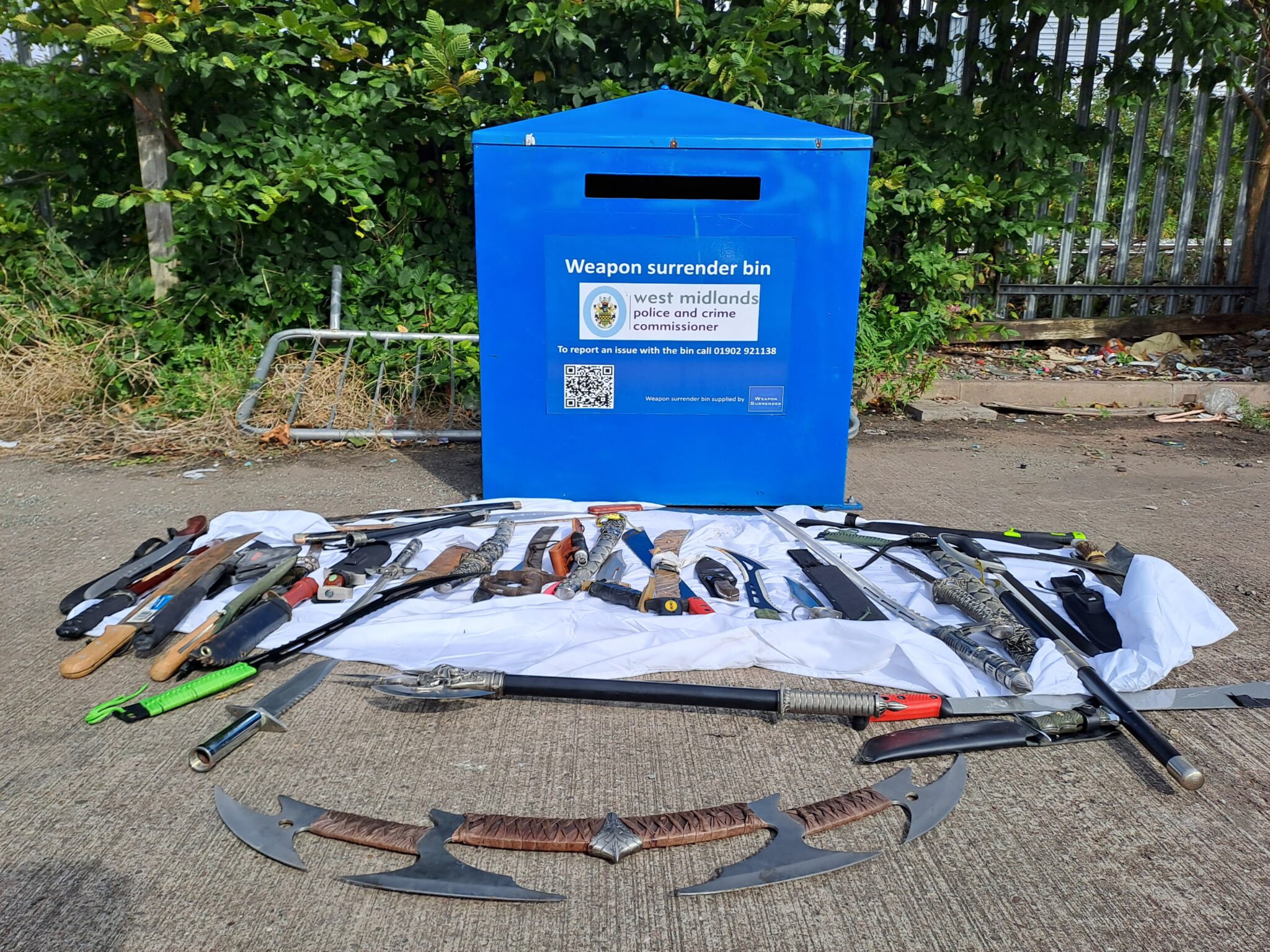Almost half of young people have been affected by knife crime as new measures introduced in West Midlands
A recent study has found that 46% of young people have been, or know someone who has been, a victim of knife crime, prompting new measures to be introduced across the country.
The survey, undertaken by the Kiyan Prince Foundation, also uncovered that over eight in 10 young people (83%) are concerned about youth violence levels.
The Kiyan Prince Foundation is named after the 15-year-old boy fatally stabbed in north London after he attempted to break up a fight outside his school in 2006. The organisation attempts to “support young people […] in making the positive choices needed to take control of their own stories”.
More than 75% of respondents to the charity’s survey believed knife crime had worsened in the last five years. Over 70% labelled knife crime as a societal issue as well as a criminal one, while two-thirds noted that the law doesn’t do enough to focus on the root causes of knife crime.
Although legislation has attempted to make purchasing knives more difficult, 80% of 16-to-24-year-olds remain unconvinced by these efforts, with the majority believing that young people will simply find alternative purchasing methods
Out of the 1,030 young people surveyed, who were representative of the national picture, seven in 10 said they believed that the national approach to tackling youth violence in the last 10 years has been unsuccessful.
Although legislation has attempted to make purchasing knives more difficult, 80% of 16-to-24-year-olds remain unconvinced by these efforts, with the majority believing that young people will simply find alternative purchasing methods.
Investment in local mental health services, sports clubs, and employment opportunities for young people has widely been seen as a way to address the problem – with three-quarters of those surveyed agreeing.
Dr Mark Prince OBE, Kiyan’s father and founder of the Foundation said: “It is clear that the current approach to reducing youth violence is not working. […] Without a coherent public health approach to this issue, it will not improve.”
From 1 August, it will also become illegal to own, manufacture, or sell ninja swords in the UK
New government measures have been put in place to tackle the issue of knife crime, including retailers having to report suspicious sales to police, increased prison sentences for those selling weapons to children, and increased sentencing for selling illegal blades.
Further initiatives include a £70,000 fine aimed at technology companies who do not remove posts relating to knife crime from their websites. From 1 August, it will also become illegal to own, manufacture, or sell ninja swords in the UK.
The West Midlands previously had the highest rate of knife crime in England and Wales, and is currently rated second highest, despite a 6% fall in reported knife crime from last year.
A Home Office scheme will provide ‘surrender bins’ for ninja swords in the Warwickshire police stations of Rugby, Leamington, Stratford, and Nuneaton from July.
[Weapon surrender bins] play an important part in keeping people, families, businesses and communities safe here in the West Midlands
Simon Foster, West Midlands Police and Crime Commissioner
Simon Foster, Police and Crime Commissioner for the West Midlands has also reaffirmed his “longstanding commitment to combat knife crime” by doubling the number of weapon surrender bins across the West Midlands.
Between January and March this year, 1,705 weapons were collected and then destroyed by West Midlands Police, equating to more than 20 per day.
Foster said that weapon surrender bins “play an important part in keeping people, families, businesses and communities safe here in the West Midlands”, with every weapon deposited “potentially a life saved”.

Comments